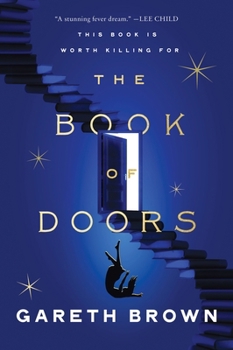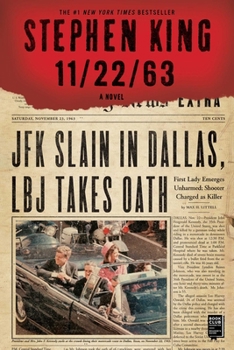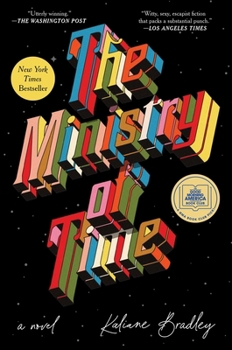If I could turn back time …
Purely by luck, I’ve read three books on time travel recently. A friend recommended The Book of Doors by Gareth Brown, my book group choose Stephen King’s 800-page 11/22/63 for its December read, and I picked up Kaliane Bradley’s The Ministry of Time.
Each of them approaches time travel from a different angle.

In The Book of Doors, an elderly customer named Mr. Webber’s leave bookstore clerk Cassie Andrews a small, leather-bound book inscribed with a note explaining that “This is the Book of Doors. Hold it in your hand, and any door is every door.” The gift permits teleportation and time travel, and soon Cassie and her roommate, Izzy are being chased by sinister book collectors, including one known only as .“the woman.” Cassie is able to door her way into the past learns about time travel, which is a closed system. As one physics professor in the book explained “You cannot change events from what has already happened. If you go back and do something in the past, then that already happened in the past and is part of history. It is part of what made your present be the present that it is, the present that you departed from when you went into the past.” In other words, since the past has already happened, you can’t change it: you can only take part in it.

In Stephen King’s 11/22/63, high school English teacher Jake Epping finds a door that will take him back the late 1950s, where he must wait for November 1963 to roll around to try to save JFK. He’s constrained by a promise to make sure Oswald acted alone. Along the way, he makes some changes in history—saving this person or that and he learns that time resists being changed, throwing obstacle after obstacle in his way. He eventually succeeds in stopping the assassination, only to find that the present is worse. So it’s back to the past again to let time takes its course.

In The Ministry of Time, the unnamed narrator is a Cambodian-British bureaucrat who serves as one of the “bridges” to a small group of time refugees. England has found a time door and is testing it on individuals facing imminent death in the past, bringing them to now to determine what is possibly biologically. Their bridges are minders who help to acclimate them to their new twenty-first century lives. Author Kaliane Bradley treats time travel as creating a set of alternate timelines (in the spirit of King’s approach, but without the resistance by time itself and of course all the lines coexist. To complicate things more, characters come from the near future to try to guide present-day characters in their timeline and interactions with the time immigrants.
In each case, the authors–Brown, King, and Bradley–manage to do a bit more than just a time-travel trick: the possibilities of time travel are ties to the ways in which the characters connect with other people and their worlds. And each makes us think about the possibility, impossibility, and difficulty of change.

 Follow
Follow